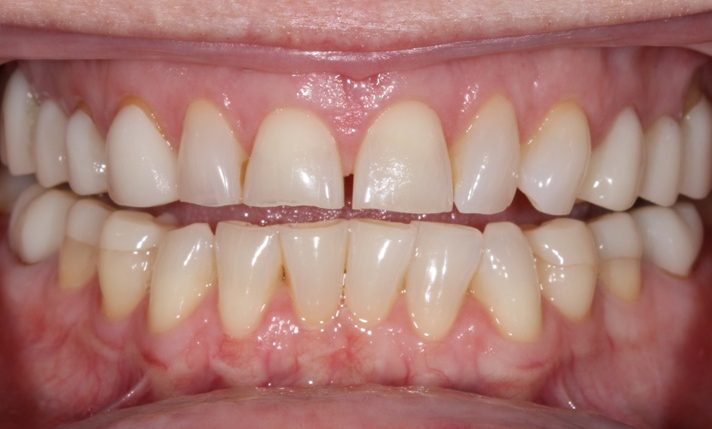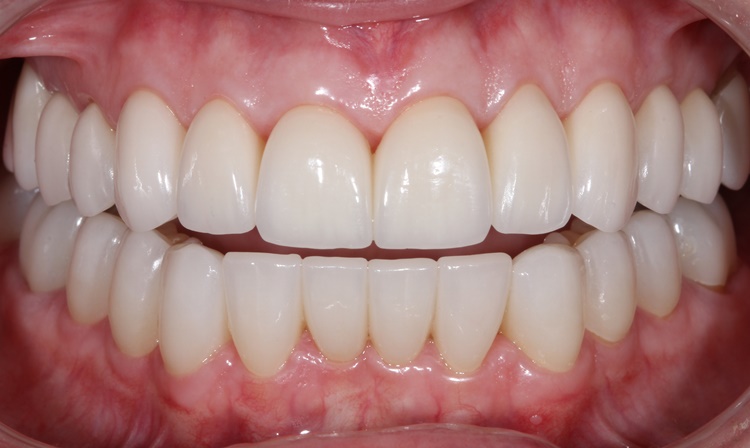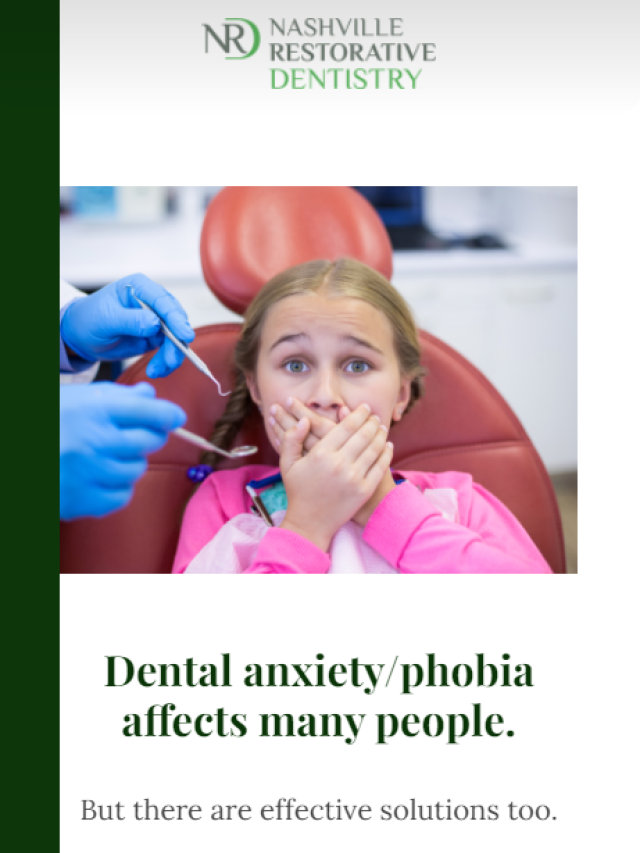
06
Aug
Are you grinding your teeth?

Most people don’t realize they’re grinding their teeth until damage has already been done — they might be experiencing jaw pain or their dentist noticed wear on their teeth. Maybe they’re waking up with headaches every day or, in some cases, the grinding was loud enough that their sleep partner noticed. Regardless of how they discover the problem, chances are it’s been happening for a while.
Teeth grinding is actually known as “bruxism,” which refers to any friction between the teeth outside of normal use like chewing and swallowing. If left untreated it can cause damage to jaw joints, significant loss of tooth structure, fractured teeth, or even beginning to loosen them.
What causes teeth grinding?
There are several circumstances that can lead to teeth grinding, including stress, an improperly balanced bite, sleep-disordered breathing like sleep apnea, and certain mental illnesses.
How do I stop grinding my teeth?
There’s no single answer to all of the causes of teeth grinding, but once we’ve determined the likely cause for your specific case, you can move forward with treatment. If your bite is out of balance, this can often be corrected by equilibrating the bite, moving teeth with orthodontics, or altering the anatomy of the teeth and the way they work together with purposefully planned dental work.
If your bruxism is triggered by stress, the symptom often dissipates along with the stress, so you can use a properly designed nightguard to protect your teeth temporarily. Finding healthy ways to lower your stress level will always be the best way to treat this particular cause.
In some cases, like that of a mental illness or disorder, it may be impossible to stop the grinding entirely. The priority then becomes minimizing damage using tools like a nightguard, a daytime splint to alleviate jaw pain or even botox to limit muscle activity.
How do I fix teeth damaged from grinding?
First, we have to find a comfortable joint and muscle position. Then we can repair the damage with ceramic onlays, crowns, and veneers to rebuild the lost tooth structure and restore the bite to a healthy, balanced position. This will ideally prevent further dysfunction and grinding.
For those who can’t or don’t want to have comprehensive restorative treatment like this, minimizing further damage becomes the priority. As mentioned, wearing a nightguard will protect the teeth while sleeping, and a daytime splint can alleviate severe clenching pain if necessary. Botox can also be an option to minimize muscle activity in the jaw.
Actual Patients Results


Jennifer

Issue: Years of an dysfunctional bite and grinding habits led to jaw pain and significantly worn down and broken teeth. She wanted to recreate a more youthful smile while repairing the damage and getting rid of her TMJ pain.
Solution: A deprogrammer was used to relax her muscles and find a comfortable position to rebuilt her bite into. A new mock up was made for restoring the teeth and long term provisionals were copied from that design placed on the back teeth to confirm her comfort with the changes. Once that was confirmed, the full mouth placement of e.max over zirconia crowns was completed.
What happens if I keep grinding my teeth?
If left untreated, teeth grinding can create major long-term problems. It can cause permanent damage to the jaw joint in addition to enamel loss, which exposes the teeth to an increased risk for additional wear, cavities, and sensitivity. Eventually, bruxism can cause cracking or fracturing of teeth that can require significant dental work or even tooth loss.
If you think you’re grinding your teeth, give us a call or send us a quick message. We believe in whole-body wellness, and we know bruxism can negatively affect your sleep as well as your ability to enjoy your day-to-day life. We’d love to help you restore your teeth and cure or manage your symptoms so you can get your life back.
Call Nashville Restorative Dentistry at (615) 640-8494 to schedule an appointment, or click here for a free virtual consult. We’re ready to listen and create a plan for healing that works for you.
We are equipped to handle the majority of your dental needs
We understand the importance of having a dentist you can trust. And that means not being sent off to a different specialist every time you need a new procedure. At Nashville Restorative Dentistry, we are equipped to handle the majority of your dental needs from cosmetic to restorative, implants to extractions. When you come to us, you are getting a dental team for life.
Share this Article
Experience excellence in dental care today.
You shouldn’t have to worry about your mouth or let unpleasant past dental experiences prevent you from living the life you want.
Reviewr Name
Michelle W.
Patient Testimonial
Issue: Spacing between the front teeth and an uneven tilt to the smile.
Solution: Short term orthodontics to evenly spread out the space between the teeth followed by veneers across the eight front teeth to create a level smile with color consistency and no spaces.







